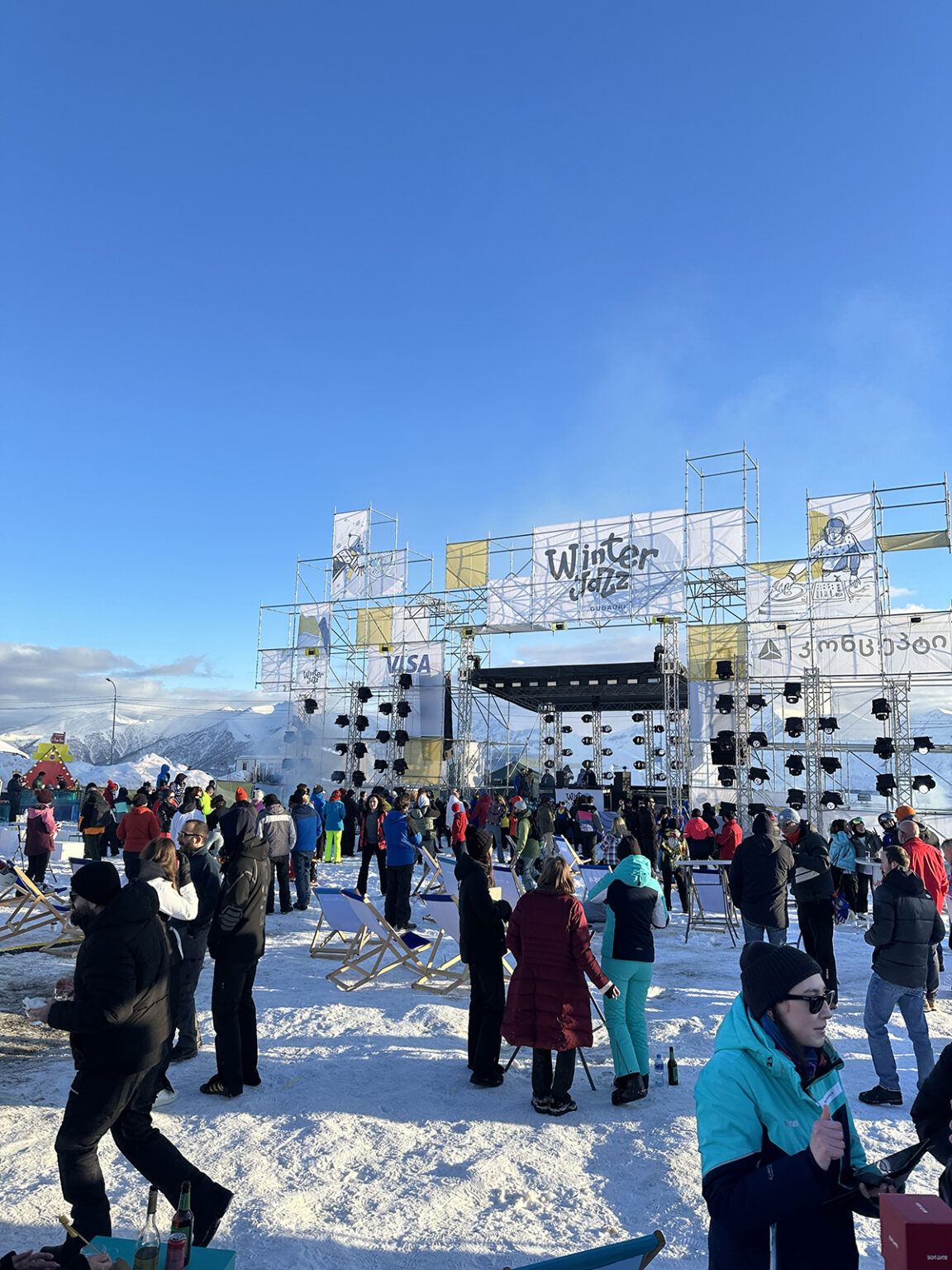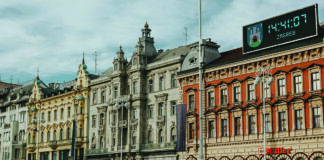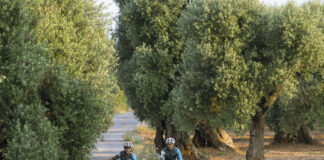The country of Georgia is building its brand as the birthplace of wine. Those in the know also rave about Georgian cuisine, including delicious khinkali (steamed dumplings) and khachapuri, a loaf of bread stuffed with melted cheese and which is altogether superior to pizza. What surprised and delighted me, however, was the breathtaking scenery of the Caucasus Mountains, a destination offering everything from ancient churches to lively music festivals.

Georgia’s Mtskheta-Mtianeti region lies close to the capital, Tbilisi, and it is an all-season tourist magnet. The historic town of Mtskheta is known by Georgians as Little Jerusalem; it’s the country’s former capital and holiest site, as it was here at the confluence of the Mtkvari and Aragvi Rivers that Christianity was proclaimed as the official religion of Georgia in 337 AD. Yes, you read that right: Georgia was one of the first countries in the world to adopt Christianity, almost 1,700 years ago. Together, Mtskheta’s Jvari Monastery and Svetitskhoveli Cathedral are listed as a UNESCO World Heritage Site, the Historical Monuments of Mtskheta; and the town is the headquarters of the Georgian Orthodox and Apostolic Church. The ancient monuments testify to the region’s high culture; its sophisticated arts of stone masonry, pottery, as well as metal casting and processing; and the social, political, and economic evolution of this mountain kingdom which has supported artisans for some four millennia.
From Little Jerusalem to Little Switzerland, the equally affectionate moniker given to the mountain resort of Gudauri, it is just a little over an hour’s drive. The city’s buzz subsides as the car climbs, and it is replaced with mountain tranquillity and a bit of molkhena, a useful Georgian word which translates as “the act of having fun”. It’s a term I’ll use a lot in the days to come. The air feels crisp and there are eagles flying above your head. For much of the year you are greeted with the sight of sparkling snow, as the altitude of the peaks is relatively high, though in mid-summer the white powder is replaced by verdant green.
Gudauri is young as mountain resorts go, but it is well located for year-round travel: you can horse ride and raft on the Aragei River, hike or take an off-road jeep tour to remote landmarks like the Georgetown Trinity Church above the village of Stepantsminda. There’s plenty of wildlife here, birds and mammals alike, so carrying a pair of binoculars is advised.
I arrived in Gudauri on the cusp of winter and spring. There was still plenty of snow for skiing and snowboarding, but already residents and tourists alike wanted to be outdoors in the bright sunshine, welcoming the coming of longer days. Many of us had come for Winter Jazz, rightly described as “Georgia’s hottest party in fresh air”. It is an annual event organised by Eastern Promotions, the Mountains Tracks Agency, and the Georgian National Tourism Administration. Tbilisi is regularly cited as one of Europe’s top party capitals, and the festival draws big name artists and their fans out into this mountain paradise. The 2024 programme kicked off with Tbilisi native Soulidan, a name which means “from the soul”. It is an intense state of being, and when the music started it was impossible not to dance ‘soulidan’ as soon as I heard the beat.


There are plenty of hotels now in Gudauri, but I wanted to stay in the heart of the action, at the Alpina Hotel. The mountains are visible from every window, as well as from the huge outdoor terrace, and the peaks do look rather like the Alps. Alpina is busiest in winter as it is close to Gudauri’s main chair lift, but later in the season it’s a relaxing spot to retreat to for a long weekend. There’s a laid back atmosphere and children are welcome, and with plenty of well designed public spaces there are lots of opportunities to get chatting with other well traveled and engaging guests. Gudauri seems to attract those kinds of people.
What you realize quickly when you come to Georgia, and the Mtskheta-Mtianeti region in particular, is that everything in this culture is about food. I thought I was coming to Gudauri for jazz, but really it was an elaborate decoy: the real focus of this and every other Georgian event, it seems, was eating and drinking. The festival opens its arms to visitors, serving hyper local produce and also pop ups introducing other region’s speciality cuisines. I indulged in a modern twist on a Georgian classic: vegetarian lobio beans, in this instance filling a sandwich made by the small, independently owned Andamagi. It’s typical of the cuisine of Racha, a highland area in western Georgia, as I learnt whilst sipping wine from the family-run Jobava Winery in Kakheti.

Every Georgian I’ve met, in Georgia or abroad, has prided themselves on their warm hospitality: they see it as the anchor of their national identity. As a guest, especially one who might be hungry, you are enthusiastically welcomed into conversations, as if you were family or an old friend. As each stall holder prepared my food, they carefully wrapped it in stories from their region. It’s a beguiling approach and one which made me want to visit every village, every stream, every vineyard that they described.
Even once my stomach was full, my eyes kept wandering towards a khinkali stall, where two young men were preparing these popular snacks from scratch. Everyone could see the process before they ate them hot. I was told that the very best khinkali are made in Pasanauri, a small town on the Georgian Military Road, and I knew then that I would have to make a gastronomic pilgrimage to taste them for myself. The following morning, I did just that, sinking my teeth into the juiciest khinkali at Chabarukhi Restaurant on the way back to Mtskheta. Learning of my newfound obsession with their khinkali, the ladies in the kitchen invited me to make some of my own.


With the dough between my fingers, I was finally able to grasp Georgians’ philosophy behind everything that they do. “There is wisdom in everything,” said my tour guide, Kartlos Chabashvilli of Inter Georgia Travel. “We even believe the way you treat wine during the winemaking process is how the wine will then treat you.” Keeping this in mind, I shaped my khinkali more carefully and focused on positive thoughts, just to be on the safe side.
Georgia stays with you, long after you depart. The conventional picture of wine, khinkali, and mountains is true, but it is a gateway into understanding and appreciating the country’s more diverse, united and strong soul. I’ve learned that there is no such thing as a goodbye in Georgia. Instead, there is nakhvamdis, or “until we see each other again”. It captures a very Georgian essence, of hope and warm affection. Nakhvamdis, Georgia!
www.georgia.travel













